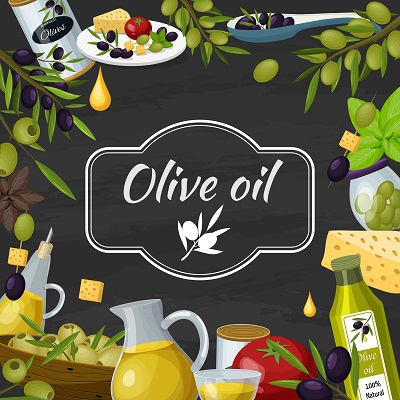 Olives and olive oil play a big part in any Mediterranean Diet plan. Olives are high in a wonderful Omega 3 fatty acid called alpha-linolenic acid, and extra-virgin olive oil (EVO) is the healthiest olive oil type, since it is extracted using natural methods. Other olive oils take the liquid from olives by using chemical solvents and high heat. This lowers the nutritional value of non-EVO products.
Olives and olive oil play a big part in any Mediterranean Diet plan. Olives are high in a wonderful Omega 3 fatty acid called alpha-linolenic acid, and extra-virgin olive oil (EVO) is the healthiest olive oil type, since it is extracted using natural methods. Other olive oils take the liquid from olives by using chemical solvents and high heat. This lowers the nutritional value of non-EVO products.
However, there is a problem. Some extra-virgin olive oil manufacturers are not being honest with you.
A study conducted at the UC Davis University in California revealed some alarming information. It showed that as much as 69% of all extra virgin olive oil brands sold in the United States are not EVO at all. These same brands are sold globally as well.
186 extra virgin olive oil samples were tested, using recognized EVO standards developed by the International Olive Council (IOC). Accepted EVO qualification methods from Australia and Germany were consulted as well.
Why are these findings a problem?
Olive oils of any kind are still going to be healthier for cooking, and your body, than most other cooking oils. But to make the extra-virgin olive oil claim, the excepted IOC standards of premium quality must be met. This is because when heat and chemicals are used to extract the oil from olives, your nutritional benefits suffer greatly.
The final product ends up becoming too oxidized and of poor quality, and is in some cases even combined with cheaper oils which have been refined and processed.
How can you spot “true” extra-virgin olive oil?
Look for the seal of approval from the California Olive Oil Council or the IOC. There are also other legitimate councils and organizations around the world which test and then approve qualifying extra virgin olive oil brands with their specific seal.
However, there is no universally accepted approval process. Some smaller companies cannot afford to pay testing fees, even when their extra-virgin olive oil is of excellent quality. However, looking for a harvest date on a bottle of EVO can also give you some great information. If you are considering buying extra virgin olive oil that does not have a harvest date, you may want to think again.
You can also check the food label to identify where the olives were grown. Fewer olive sources tend to point to products which spend less time in the manufacturing process, and less time shipping to get to your grocer’s shelves.
The bottom line? Extra virgin olive oil is usually healthier than non-virgin olive oil, and a smart part of a healthy Mediterranean Diet. But as with all purchases, ‘caveat emptor’. Let the buyer beware.






